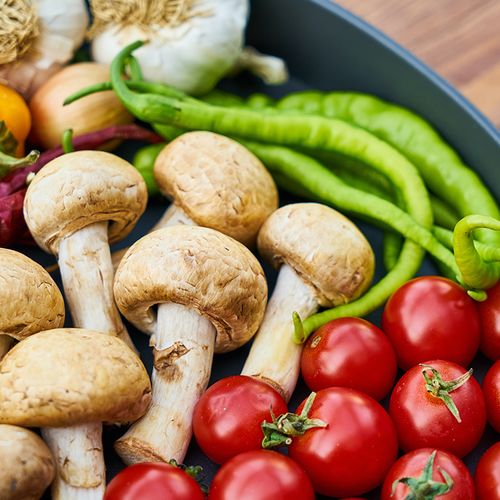For centuries, Asian physicians have used mushrooms for medicinal purposes, but only recently have they become a focus of research in the US.
Latest findings: In addition to being highly nutritious, mushrooms contain chemical com-pounds that appear to lower the risk for elevated cholesterol, cancer and other serious conditions.
Studies on the medicinal properties of mushrooms—in whole food as well as supplement and extract form—are under way at the National Cancer Institute and other medical organizations.
It's not yet known whether mushroom extracts and supplements are more beneficial than the whole food. Some medicinal mushrooms, such as reishi, have a tough, woody texture and can be taken only as an extract. But most—shiitake, maitake, etc.—are edible and avail-able at supermarkets and specialty stores.
Caution: It's best to avoid wild mushrooms and to eat only those that have been proven safe —that is, store-bought mushrooms.
Aim to eat three to six ounces daily of a va-riety of mushrooms. Raw and cooked mush-rooms contain equal levels of nutrients.
Important health benefits…
Cholesterol Control
High cholesterol is among the main risk factors for cardiovascular disease. Studies have shown conclusively that patients who lower LDL -bad- cholesterol with statin drugs can reduce their risk for heart attacks by 25% to 50%.
New finding: The oyster mushroom contains significant amounts of statin-like compounds, which suppress the activity of HMG-CoA reductase, an enzyme used to make cholesterol in the body.
Bonus: It’s possible that oyster mushrooms can lower LDL without suppressing HDL "good' cholesterol.
All mushrooms contain chitin, a structural material that strengthens the cell walls in people who eat them. Chitin, which accounts for 25% to 30% of a mushroom's dry weight, binds to cholesterol molecules in the intestine and prevents them from passing through the intestinal wall into the bloodstream.
Antioxidant Activity
The white button mushrooms that dominate the produce bins at American supermarkets were once thought to be insignificant sources of disease-fighting antioxidants—but new research shows that they're high in L-ergothioneine, an antioxidant that's produced only by fungi.
The Best Choices
Crimini and portobello mushrooms contain even more L-ergo-thioneine than white but-ton mushrooms, and have the highest overall antioxidant content. What's more, all three of these mushrooms contain about 15% more L-ergothioneine than wheat germ or chicken liver, which previously were thought to be the richest sources.
The body has a chemical transport system dedicated solely to L-ergothioneine, which indicates that it's critical for normal metabolism.
In addition to L-ergothioneine, most mushrooms are also rich in selenium. Depending on the variety, one serving of mushrooms (about three ounces) provides about 10% to 20% of the recommended daily intake of this mineral-55 micrograms (mcg) for women and 70 mcg for men. Selenium is a very powerful antioxidant that inhibits blood-fat oxidation and the accumulation of arterial plaques.
Important: Most "specialty" mushrooms, such as oyster, shiitake and maitake, contain only trace amounts of selenium because they are grown on hardwood or sawdust, rather than selenium-rich soil. White button and crimini mushrooms are good sources of selenium.
Anti-Cancer Activity
As far back as the 1950s, studies showed that laboratory animals with cancer that were given mushroom extracts had higher survival rates.
Increasing evidence now suggests that mushrooms contain chemical compounds and nutrients with anticancer properties.
Those anticancer chemicals…
- Lentinan, a substance in shiitake must-rooms, has been found in animal studies to increase levels of immune cells (such as T- and 13-lymphocytes) that suppress tumor development.
- Aromatase inhibitors suppress the en-zyme aromatase, which converts androgens (the so-called 'male" hormones) into estrogens (the so-called 'female" hormones). Lower estrogen levels may reduce the risk for prostate cancer and some kinds of breast cancer. White button, crimini and portobello mushrooms have the highest levels of aromatase inhibitors.
- 5-alpha-reductase, an enzyme found in white button mushrooms, suppresses the con-version of testosterone to dihydrotestosterone (UHT), a hormone that promotes the development of prostate cancer.
Weight Control
An average serving of mushrooms has only about 28 calories and 0.4 g of fat—nearly ideal for a weight-loss diet. The high water (more than 90%) and fiber (up to 1.8 g in shiitake mushrooms) contents make mushrooms more filling than many other low-calorie foods. The chitin in mushrooms is also beneficial for weight loss because it reduces the absorption of fats.
